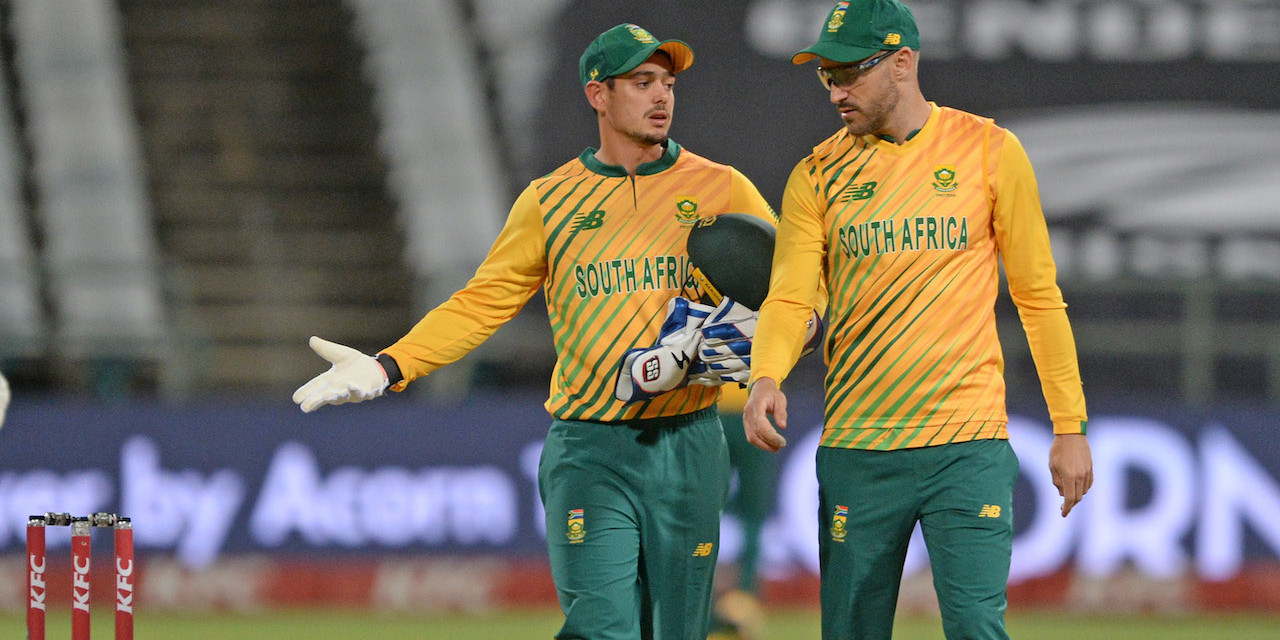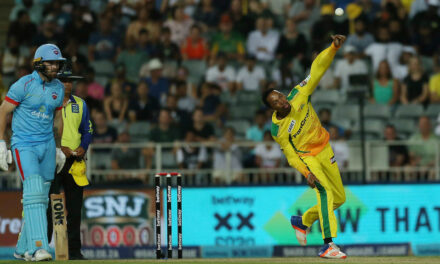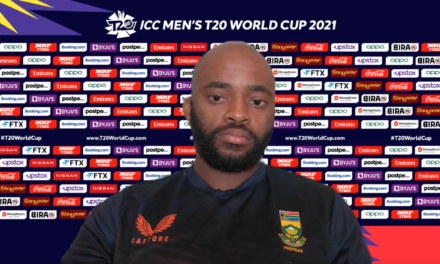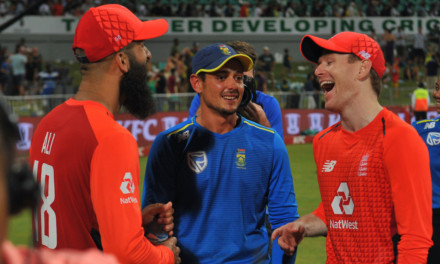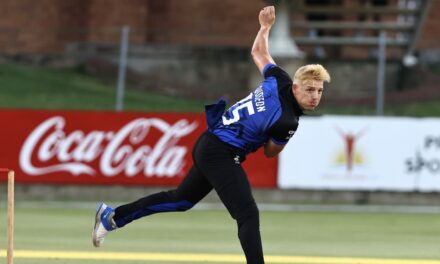Instead of choosing to ignore reality, fans could play their part and support the Proteas through this rocky period, writes Chris Chiwanza.
In 1972, Walter Mischel conducted an experiment that is now known to many as “The Marshmallow Test” or “The Marshmallow Experiment.”
For the experiment, he invited a group of four-year-olds to his Stanford psychology laboratory. Upon arrival, he each child, “Do you like to eat marshmallows?” Without failure, the response was always an affirmative, “Yes.”
Right then, Mischel made the child an offer. The child could eat one marshmallow right away or, if the child was willing to wait for a few minutes while Mischel went off to do something quickly, he could eat two marshmallows when he returned.
Children love sweets, and it’s no surprise that they chose to wait.
As he was leaving, Mischel mentioned that if the child rang the bell, Mischel would return immediately and the child would be allowed to eat the marshmallow on the table. What this meant, though, is that the child would forego the second one.
Most of the kids couldn’t resist the sugary temptation for more than a few minutes. Among those that were trying, a number of them covered their eyes with their hands so that they couldn’t see the marshmallow. One child is documented to have started kicking the desk, while another one started pulling on his hair.
While a few of the kids were able to wait for up to fifteen minutes, many lasted less than one minute. Others just ate the marshmallow as soon as Mischel left the room without even bothering to ring the bell.
Walter Mischel’s experiment was a test of self-control, delayed gratification.
Many of us are prone to behaving like the kids who either did not ring the bell before eating the marshmallows or the ones who lasted just around a minute. We see something amazing, we want it immediately.
For instance, when Mark Boucher shared that the new brand of play of the Proteas will be encapsulated in two words, smart and aggressive, that is what fans expected from the onset of the T20 series. Aggressive shots, clever bowling and edge of the seat action. And while England delivered that in spades, the Proteas did not.
In the team’s first match after the Skukuza camp, where the team and the technical staff formulated a brand of play, the smart and aggressive is not yet there in full flow. But that doesn’t mean that it won’t come.
“Days like today are very difficult because we haven’t won,” Mark Boucher shared in the post-match press conference after the last T20 against England.
Fans share this feeling, as a huge number found themselves deflated. There was more sadness, and anger for some, than joy from the just-concluded series. A 3-0 whitewash is a bitter pill to swallow for a proud cricketing nation like South Africa, a difficult reality to accept.
In the series, England has been dominant, showing that they are still ahead of the Proteas by some distance. In all three matches, England has come out with purposeful intent and played with confidence. They have made light work of the Proteas efforts to restrict them, routinely chasing down totals that could be competitive against other opposition.
And, even though Dawid Malan earned the Man of the Match mantle two matches in a row, the English team has something South Africa lacks, match-winners. As Dawid Malan put it, “We’ve got so many match-winners, over the last four-five years, players are used to getting over the line on the big stage. Everyone feeds off each other in our batting line-up.”
However, despite the presence of match-winners, one thing has remained constant in the way the visitors have played: they have had partnerships. They have shown not only an understanding of how to play well, but also an understanding of each other. It would be an understatement to say that they are in a good place. And as Eoin Morgan admitted after the second T20, experience does help.
South Africa, on the other hand, despite moments of brilliance, has lacked consistency with both bat and ball. It is very apparent that the Proteas are still trying to find that good place. And for them to get to that good place it will take experience, and a lot of trial and error. It will take a few disappointments before they can be a force that can consistently win.
As an ex-Proteas player, Omar Henry said after the second T20, “Unfortunately those are very expensive lessons to learn, and sometimes it hurts. It is how strong we can come out of this series or the next game and maybe take a win out of it.”
Unfortunately, even though a win in the third T20 would have gone a long way in helping boost morale, it was not to be. And it is now, more than ever that it is vital to take heed of Mark Boucher’s sentiments that: “this is not a short journey, this is a long journey.
“We’ll keep learning. We are getting tested against a very good team and that’s how we wanna get tested as well. If it’s going to expose weaknesses, then it’s a good thing.”
The Proteas have to learn these lessons and they have to learn them quickly.
But, it’s not all doom and gloom. In the midst of all these lessons that should be learnt, there have been standout positives.
In a press conference that he fielded just before this series took off, the Proteas head coach, Mark Boucher, revealed that there was no set XI. Boucher revealed that all the players have the pen in their hands to write their name on to the list.
And without doubt, George Linde has been the first one to jump at the opportunity to write his name down. His performances in the first two T20s have been nothing short of excellent.
And, while there is a lack of clear identity in the way the Proteas are playing, as they seem caught in between the smart and aggressive brand that they want to play and the conservative play, the intent to change is visible.
However, the change will not happen overnight in the same manner as instant makeovers do. It will take patience from the players as they try to go against what was their natural game when playing for the Proteas.
It will take patience from the coaches as they try to find the right players for certain roles and situations. It will definitely take a bit of time.
“It’s not easy to go from one approach to another, it takes time,” says Henry.
And Boucher seems to be in agreement with Omar Henry’s sentiments, “We have a way to go. If you look at the England team, they came together, probably, in 2017 and they were also asking a lot of questions of themselves, trying to find a balance to suit their type of play.
“I think we are in that space at the moment. These guys have got together, they won a world cup, so they are oozing with confidence, and we can see that in the way that they play. So I think they’re players are more developed on the positions that they play.”
To circle back to Mischel’s experiment. In 2011, B. J Casey, a Tale University professor re-tested Mischel’s subjects. Her findings were that those who were impulsive, expecting instant gratification were prone to behaving like that in adulthood.
Not only that, but those studies and many others have shown that the less impulsive, those with more self-control, are more successful later on. As the ancient sayings exhort, patience is a virtue and good things come to those who wait.
Now, whether or not fans are ready to accept the reality of where the team is, and the difficulty that lies ahead, it will not change things. Therefore, instead of choosing to ignore reality, fans could play their part and support the team through this rocky period. It will take a few games to have everything in place.

